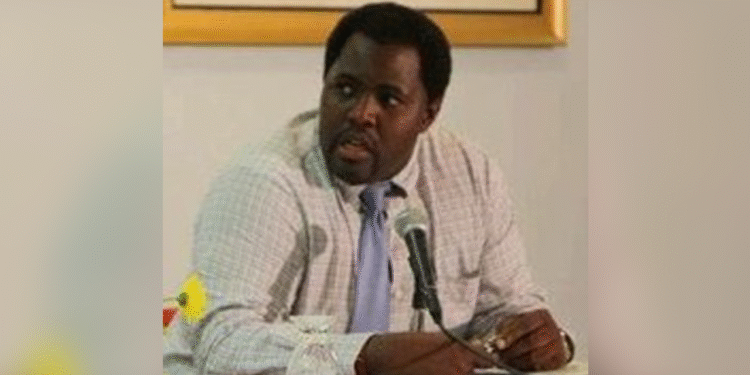Civil Society Organizations (CSOs) across Antigua and Barbuda have taken a significant step forward in strengthening community resilience and promoting citizen security through a dynamic training session held this week.
Organized under the framework of the United Nations’ commitment to inclusive development and peacebuilding, the CSO Citizen Security Training brought together over 20 participants from diverse organizations working at the grassroots level. The training aimed to build capacity in areas such as civic responsibility, human rights, violence prevention, and the role of CSOs in fostering safer, more inclusive communities.
Jason Francis, Senior Policy Advisor, Conventional Arms Control Programme – Caribbean, United Nations Regional Centre for Peace, Disarmament and Development in Latin America and the Caribbean (UNLIREC), underscored the importance of CSOs in supporting the objectives of the Caribbean Firearms Roadmap to reduce the illicit proliferation of firearms and ammunition across the Caribbean.
“I was deeply impressed with the title of the workshop: Training and Sensitization Session on the Importance of Civil Society Organizations in Strengthening Community Involvement and Citizen Security as this amply reflects the multi-sectoral work done by the Ministry responsible for National Security”, remarked John McKinnon, Director of Projects, Ministry of Legal Affairs, Public Safety, Immigration and Labour.
Richard Jones, Executive Director of the Caribbean Policy and Development Center, emphasized the importance of working collaboratively through the formation of umbrella bodies and networks among CSOs across the Caribbean to amplify their collective voice and influence regional development agendas. He further encouraged CSOs to document their work and showcase the unique contributions they make to Caribbean development.
Participants engaged in interactive sessions led by regional and international experts, including a compelling presentation by Peace and Development Officer in the Resident Coordinator Office in Trinidad and Tobago, Dylan Kerrigan, whose work on community-based prevention models sparked vibrant discussion and new ideas for local implementation.
“This training has equipped us with the tools and insights needed to design more impactful projects,” said one participant. “It’s inspiring to see how citizen-led initiatives can contribute meaningfully to national security strategies.”
The initiative forms part of a broader effort to enhance multi-stakeholder collaboration in support of citizen security, aligning with the Sustainable Development Goals and the UN’s strategic priorities in Small Island Developing States (SIDS).
LaFleur Quammie, Coordination Officer in Saint Vincent and the Grenadines and CSO Focal Point in the Resident Coordinator Office for Barbados and the Eastern Caribbean, emphasized the importance of empowering CSOs:
“Civil society plays a critical role in shaping safe and inclusive societies. This training is a testament to the power of partnership and local leadership in driving sustainable change.”
Andrea Andrew, Country Coordination Officer in Antigua and Barbuda in the Resident Coordinator Office for Barbados and the Eastern Caribbean reminded participants that their deep-rooted presence in communities, ability to mobilize collective action, and their role in fostering trust between citizens and institutions make them indispensable partners in advancing citizen security and sustainable development.
The training concluded with a renewed commitment from participants to apply the knowledge gained in their ongoing and future projects, ensuring that citizen security remains a shared responsibility across all sectors of society.



